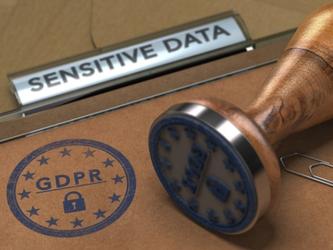UK AI guide released as data bill enters parliament

The AI guide has been published to help develop consistent rules to promote innovation in the technology while maintaining public protection.
The paper includes an approach to AI regulation based on six core principles to be used by regulators when scrutinising AI use in their respective industries.
The six principles are: to ensure that AI is used safely; to ensure that AI is technically secure and functions as designed; to make sure that AI is appropriately transparent and explainable; to consider fairness; to identify a legal person to be responsible for AI; and to clarify routes to redress or contestability.
Regulators such as Ofcom, the Competition and Markets Authority, the Information Commissioner’s Office, the Financial Conduct Authority and the Medicine and Healthcare Products Regulatory Agency will be asked to interpret and implement the principles.
The government said that regulators will be encouraged to consider lighter touch options which could include guidance and voluntary measures or creating ‘sandboxes’, such as a trial environment where businesses can check the safety and reliability of AI technology before introducing it to market.
A call for evidence has also been launched, with responses considered alongside further development of the framework in the forthcoming AI White Paper. The white paper will explore how to put AI principles into practice.
The government will also consider ways to encourage coordination between regulators as well as making sure that they are equipped to deliver a world leading AI regulatory framework.
The UK’s AI sector is Europe’s largest and third in the world for levels of private investment, with domestic firms attracting $4.65bn last year and estimates that the industry could be worth $200bn by 2040.
As part of the government’s AI strategy, an AI Standard Hub was announced at the start of this year to provide users with practical tools and educational materials to use and shape AI technical standards.
The interactive hub platform, led by the Alan Turing Institute with the support of the British Standards Institution and National Physical Laboratory, will launch in autumn 2022.
Damian Collins, digital minister, said: “We want to make sure the UK has the right rules to empower businesses and protect people as AI and the use of data keeps changing the ways we live and work.
“It is vital that our rules offer clarity to businesses, confidence to investors and boost public trust. Our flexible approach will help us shape the future of AI and cement our global position as a science and tech superpower.”
Data bill introduced
The Data Protection and Digital Rights Bill was announced in June 2022 and was given its first reading in parliament on Monday as part of reforms to the UK General Data Protection Regulation (GDPR).
The bill will regulate the processing of personal information and make provision about services which use information to ascertain and verify facts about individuals, as well as access to customer data and business data.
As part of the UK reforms, the bill will seek to cut down on the number of ‘user consent’ pop-ups and banners on websites through an opt-out model for cookies, with the government committing to working with the industry and the regulator to ensure technology is effective and readily available before introduction.
Fines will be increased for nuisance calls and texts, as well as other serious data breaches under the UK’s Privacy and Electronic Communications Regulations (PECR), with the aims of preventing companies from contacting people for marketing purposes without consent.
The ICO will be modernised to have a chair, chief executive and a board, in addition to clearer strategic objectives to uphold data rights and encouraging the responsible use of personal data, but with greater emphasis on growth, innovation and competition.
The changes to GDPR follow the ratification of a data adequacy agreement between the UK and the EU last year to maintain data transfers between the two economic entities post-Brexit.
However, the European Commission introduced a four-year ‘sunset clause’ into data adequacy agreement and stated it could withdraw the agreement at any time if the UK fails to appropriately protect EU citizens’ data.
Speaking in parliament, Matt Warman, minister for media, data and digital infrastructure, said: “We now have the opportunity to seize the benefits of Brexit and transform the UK’s independent data laws. We have designed these new updates to our data protection framework so it works in our interests, protects our citizens, and unburdens our businesses.
“Through this bill we will realise the opportunities of responsible data use while maintaining the UK’s high data protection standards.
“The EU does not require countries to have the same rules to grant adequacy, so it is our belief that these reforms are compatible with maintaining a free flow of personal data from the European Economic Area.”

We hope you enjoyed this article.
Research Live is published by MRS.
The Market Research Society (MRS) exists to promote and protect the research sector, showcasing how research delivers impact for businesses and government.
Members of MRS enjoy many benefits including tailoured policy guidance, discounts on training and conferences, and access to member-only content.
For example, there's an archive of winning case studies from over a decade of MRS Awards.
Find out more about the benefits of joining MRS here.














0 Comments